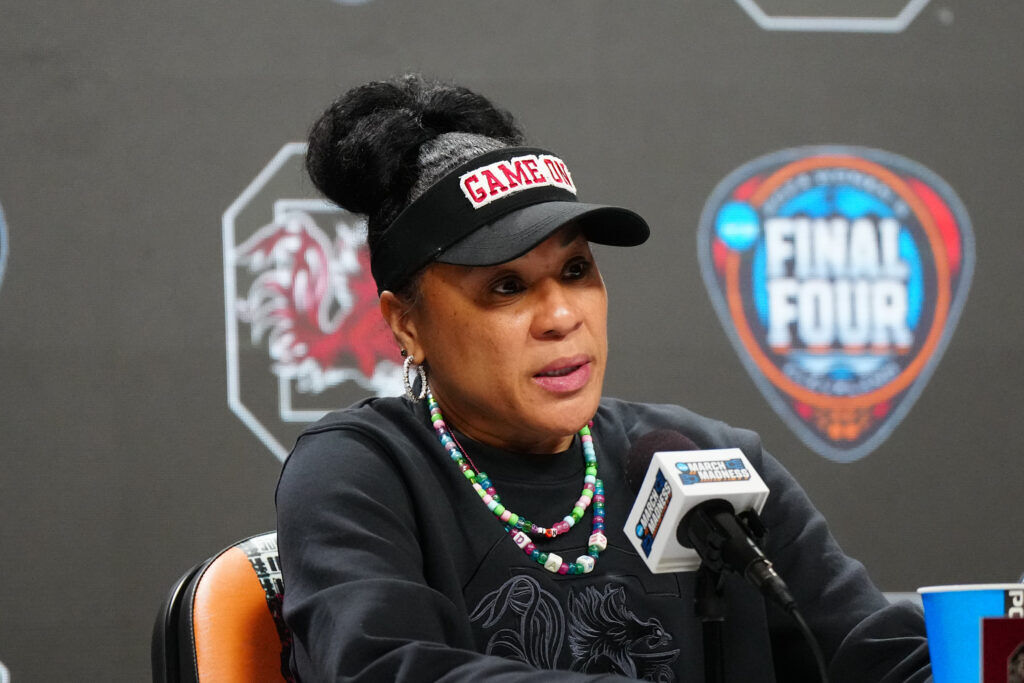NAIA accused of bowing to ‘political pressure’ over ban on trans women student-athletes
The small colleges governing body has decided to exclude transgender women student-athletes, with Chris Mosier among those critical of the ban. The post NAIA accused of bowing to ‘political pressure’ over ban on trans women student-athletes appeared first on Outsports.

The National Association of Intercollegiate Athletics announced Monday that the governing body of 250 small colleges and universities will ban transgender women from women’s sports, effective August 1.
The announcement came during the organization’s convention in Kansas City, Mo. The NAIA Council of Presidents voted 20-0 on a policy which mandates: “Only NAIA student-athletes whose biological sex is female may participate in NAIA-sponsored female sports.”
The policy also states that participation in men’s athletics would be open to “all eligible NAIA student-athletes.”
However, the policy does not clarify what that means for transgender male student-athletes who are pursuing masculinizing hormone replacement therapy. The policy does confirm that starting such a regimen would disqualify said athlete from competing in women’s sports.
NAIA President and CEO Jim Carr stated that the thrust of the policy was concerns about competitive fairness and safety. “We are unwavering in our support of fair competition for our student-athletes,” he noted in a written statement.
“It is crucial that NAIA member institutions, conferences, and student-athletes participate in an environment that is equitable and respectful. With input from our member institutions and the Transgender Task Force, the NAIA’s Council of Presidents has confirmed our path forward.”
Critics raised questions about the timing and methods of this policy, including the body’s “Transgender Task Force” which the NAIA said began in April 2022.
“The NAIA has admitted that it has no knowledge of transgender women participating in postseason competition up to the point in the history of the organization. Why is there a policy now?” Transathlete.com founder Chris Mosier said in a rebuke on Instagram.
“Apparently, they’ve had a task force working on this for two years. Interestingly enough, I don’t know anything about it and no one that I know who works trans inclusion in sport has heard anything about this task force.”
Mosier wrote: “This decision is clearly due to political pressure and not any real issue with transgender women in NAIA sports.”
According to data gathered by Outsports, there have been 39 out transgender student-athletes who have competed at any level of collegiate sports.
Only two of those have competed openly at the NAIA level — Savannah College of Art and Design (Ga.) equestrian athlete Jay Robinson and Life University (Ga.) wrestler Mack Beggs. Both are transgender men.
Opponents to the policy also noted current political and legal climate, including the recently filed lawsuit against the National Collegiate Athletic Association by 16 cisgender women student-athletes led by anti-trans activist Riley Gaines.
“This policy is a failure of leadership by NAIA and marks a sad day for women’s sports,” Athlete Ally founder and executive director Hudson Taylor said via a statement.
“We hope other sport governing bodies don’t also succumb to political pressure, and instead fight for a future of sports where everyone belongs.”
Anti-discrimination organization You Can Play said the ban supports “misinformed stereotypes” about trans athletes and expressed disappointment that the NAIA did not reach out for a conversation prior to making its announcement.
Human Rights Campaign president Kelley Robinson called the policy “a cowardly decision that enables discrimination” on her page on the X social media platform.
“We strongly urge the NCAA to reject this type of blanket discrimination,” she continued. “Instead of promoting misinformation, athletic organizations should follow champions like Dawn Staley and fight to make athletics more inclusive.”

Looking at the demographics of the NAIA, this move is not entirely surprising. Among its member schools, 82% are private, 65% have religious affiliation and the majority of its membership is based in the 26 U.S. states that ban transgender students from school sports.
The NCAA also issued a statement Monday hours after the NAIA vote. “College sports are the premier stage for women’s sports in America,” the statement read. “The NCAA will continue to promote Title IX, make unprecedented investments in women’s sports and ensure fair competition for all student-athletes in all NCAA championships.”
However, the NCAA will also implement similar policy changes at the start of the next academic year that call for NCAA regulations to be decided by the individual world or national governing bodies of each sport.
In the case of swimming and track and field, transgender women would be banned from NCAA in line with World Aquatics and World Athletics policy.
The post NAIA accused of bowing to ‘political pressure’ over ban on trans women student-athletes appeared first on Outsports.

 Mark
Mark 





